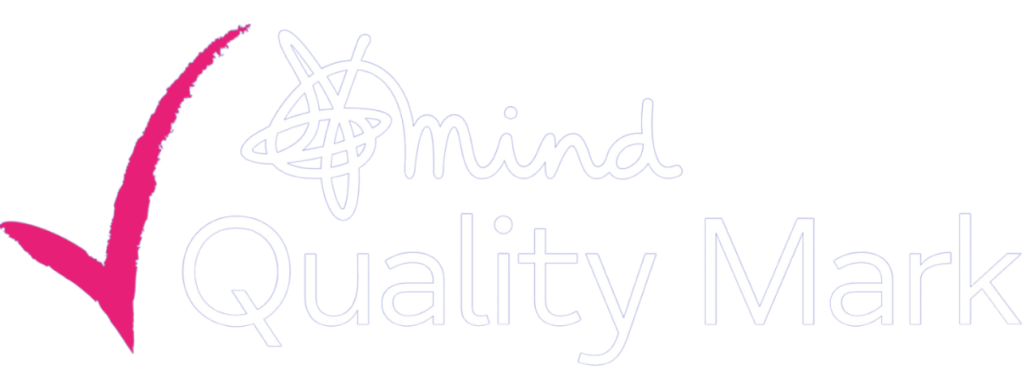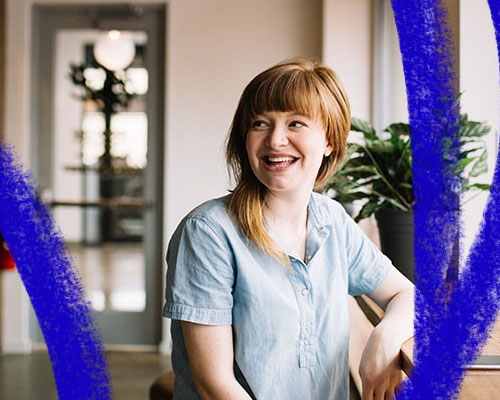I lost my sight a few years back, strangely enough, I cannot remember the year let alone the date, I remember very little detail in relation to my diagnosis, in fact I didn’t want to hear what the consultant had to say.
I do however remember, with complete lucidity, how I was feeling at the time, as if it were yesterday. I had an overwhelming compulsion to run and hide, I wanted to subscribe to the mantra that ignorance is bliss, to escape from this overriding anxiety and sense of foreboding.
I nervously awaited the fateful words of the consultant, awaiting my certain peril. My hands were clammy, my sweat ran cold and my heart seemed to be beating with a slow thud to the point of nausea. At this time, I hated the consultant, perhaps irrational, but I did want to shoot the messenger, until they were dead.
They were testing for Lebers plus, a condition that affects the production of mitochondria, essentially the battery that powers the cells. It firstly affects the eyes, then slowly shuts down the rest of the body. The alternative was LHON, which results in dramatic sight deterioration, often, to the point of blindness.
LHON, seemed like the lesser of two evils and comparatively, a walk in the park. I did think to myself, Stevie Wonder or Steven Hawking? Which Steve? Now, I’m not knocking Mr. Hawking but, for a young, athletic, aspiring football apprentice, a life in a wheelchair with a fully functioning mind, an imprisoned mind in an inanimate body.
Lo and behold, they gave me good news and by contrast, it was wonderful news. I didn’t listen to any of the detail aside from the fact that this condition wasn’t going to slowly kill me. That in itself was enough, the rest, pure irrelevance! My body became my own again after being hijacked by anxiety and I did what all teenagers on the periphery of adulthood do, I went and got drunk.
I celebrated as if I’d won the lottery, despite already being severely sight impaired, with roughly around 20% vision. I had previously heard the saying, ‘comparison is the thief of joy’, but at this point, it was my only source of joy, I could still see a bit, I didn’t have a life limiting illness, what’s the worry? Unfortunately, I wasn’t to know the journey was yet to begin!
There was an initial honeymoon stage, where I admittedly reveled in the attention, I had droves of sympathetic admirers telling me how brave I was and yes, I didn’t mind it, at first. There was also the involvement of social services. I was assigned a social worker from disability services and had numerous appointments with occupational therapists. This was a temporary and convenient distraction from the diagnosis itself and I chose not to pay attention to how I was feeling emotionally.
I showed off all the paraphernalia I had been given, these seemingly ‘humorous’ mobility aids were used as props in my own self-deprecating monologue. This became my most relied upon coping mechanism, to deflect from the seriousness with a cheap or flippant remark.
I awaited the decision of my DLA, it was due to be delivered into my bank. I felt like this day had more significance than just a payout, I almost, (in my own contorted way) considered this compensation. Despite it being no one’s fault, I perceived it as remuneration for the overtime my brain had been working.
The money came in…it was a pittance, a measly amount of back dated cash to appease the bitterness of blindness, a combination of bad mathematics and wishful thinking had devised a figure that I considered satisfactory. It was like an unscrupulous backhander I had taken to keep me quiet, but I had been underpaid and I was going to talk.
This was the first time I really lost my patience. I exploded. I felt the months of awaiting this consolation prize had diverted me from reality. I vividly remember punching the wall and screaming.
“Is this it?!”, (with numerous expletives thrown in of course.)
I realized that this was it, I was legally recognised as disabled and had been procrastinating with the truth.
I had no idea of what I wanted to do, what I could do and the grim reality of a life on benefits beckoned.
Days turned into weeks, weeks into months, I became uncomfortably comfortable on benefits. I lived with my parents, I had no bills to pay, so yes, financially, I was stable, but I was numb, the honeymoon period was over. My friends went to university, pursuing their dreams and I sat there, lost.
I thought to myself ‘Do I have any dreams anymore?’ In my mind, everything I had ever wanted was no longer possible.
The visits diminished, I got a bit older, everyone was getting on with their lives, except me. I was stationary at best, if anything regressing, I became isolated and at times scared. The only friends I had left around me, weren’t really friends, we smoked weed and drank cheap cider, wallowing in our respective misery. I’d see people every now and again, maybe at weekends or during reading weeks, I’d either construct a reinforced facade and be the happy go lucky blind man, or more increasingly take it out on others, most regrettably my friends.
I felt alone, lost and above all burdensome, like a liability for others to be around. I had become bitter above all and blamed others for my, what was in hindsight, voluntary isolation.
Pride and ego played an instrumental role in my lack of social integration, unless I was with friends, I was afraid I’d embarrass myself. I was constantly mistaken for a stumbling drunk, negotiating his way through droves of pedestrians and narrowly avoiding collisions with numerous inanimate objects.
Often the root cause of these problems was pride and defiant refusal to accept my impairment, I would do everything to disguise my condition, I developed many techniques that would aid the illusion I was fully sighted. Researching menus prior to going to eat out was a particularly memorable one, only to face the ignominy of holding it backwards and upside down whilst pretending to read it, needless to say it shattered the illusion.
I would order taxis instead of walking and quite frequently attempt to enter the wrong car, frightening a bewildered pensioner half to death in the process. Gender specific toilets or changing rooms could again prove problematic, I’d often hear the scream of an unsuspecting female prior to seeing them, this was a clear indication I was in the wrong toilet.
Strangely, in the past few sentences I used past tense, as if I used to do all these things. The fact is, I still do and will continue to do so until I finally accept my impairment, people always say to me “You deal with it so well.” But do I?
I’ll summarise more succinctly and divert from the reflective journal that this is becoming. The next few years were good, bad and indifferent, I met the love of my life, started a business, lost a business, started a new career and had unprecedented levels of chaos in-between.
I fought with others, but mainly with myself, I was my own worst enemy. In these years following my diagnosis, I fought back, but that was half the problem. As a typically testosterone fueled young man, with a cringe worthy obsession with masculinity, the baggage of a visual impairment did not fit in with this ‘lad’ persona. I think I became more obsessed with appearance than before, which is darkly ironic considering I can’t really see. I’d often be preoccupied with what others would think of how I appeared and without the ability to see facial expressions, my perception of how I was perceived by others was often dictated by assumption.
Armed with a chip on my shoulder and fueled by insecurity, my assumption could be dangerous and after being beaten quite severely on multiple occasions, this proved to be the case. I did not want to be recognised as disabled but when the inevitable ‘what are you looking at?’ came my way, I thought, why should I back down? It’s not my fault I can’t see properly, I’ll hurt you before you hurt me.
See, a lot of this was a manifestation of fear, feeling like a cornered rat. I knew I was vulnerable, but didn’t want it to be true, it was an admission I couldn’t stomach and for me, a cane, a dog, a carer, they were a tangible symbols of my vulnerability, but potentially the answer.
I write this for one reason, because I was asked to. Whilst lying on my front, inches away from my laptop and battling with the enigma that is Zoomtext, I realised how far I have come, I have self-worth, I have ambition and I am relatively happy. I have become far more open about my impairment and found out that generally speaking, people, as simple as it sounds, are good. You encounter two extremes, the overtly patronizing who will give the nauseating and obligatory ‘aww’ or the self-righteous cynics who say, ‘well you’re not actually blind are you? They will then proceed to hold their fingers up like a backstreet optician, but the majority, the vast majority are great.
This openness has been liberating and enlightening. I feel safer, happier and most importantly, less angry. I am very much in the process of acceptance and becoming increasingly comfortable with my registration on a daily basis. I’ve learnt that you are judged for who you are and not how you appear, as Helen Keller said ‘The only thing worse than being blind is having sight but no vision’.
I do not believe there is any generic way of dealing with sight loss, or loss in general for that matter. We are all human, therefore fallible. Mistakes will be made. Acceptance however, is the first step to any recovery and until I was ready to accept I was unable to move forward.
Let me ask you this, what are your initial thoughts when you see a blind person walking with a cane? Do you recognise them as a person? Would you know what to say? Would you find them attractive? Do they have a career?
Until the answers to these questions don’t matter to me anymore, I’ll keep walking, cane free.



